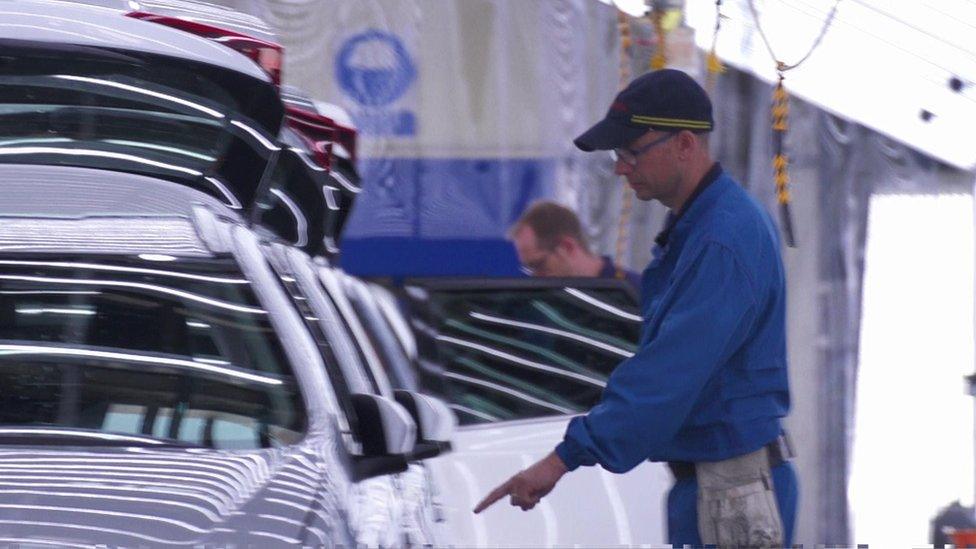New car sales plunge 20% in September
- Published
- comments
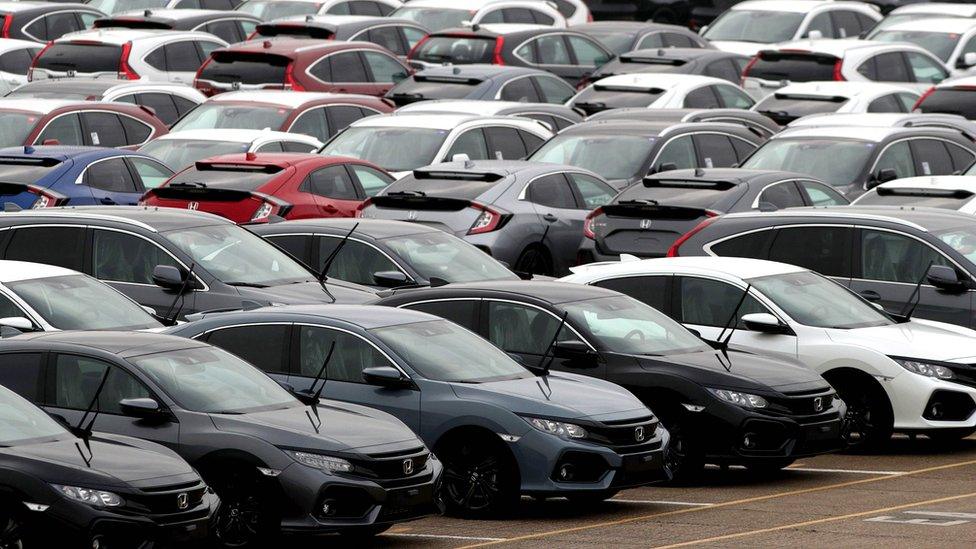
New car sales in the UK plunged in September, figures show, while a major carmaker has warned of the effects of a no-deal Brexit.
The number of total vehicles registered was down 20.5% on the same period in 2017 at 338,834, the Society of Motor Manufacturers and Traders said.
Carmakers had struggled with "a raft of upheavals" including adjusting to stricter emissions standards, it added.
Meanwhile, Nissan said a no-deal Brexit would have "serious implications".
The Japanese firm, which employs almost 7,000 people at its Sunderland plant, urged the UK and the EU to "work towards a balanced Brexit".
The SMMT said it had been an "exceptional" September, following "an unusually high August and a turbulent first eight months of the year".
It said the impact of the sales plunge was felt across the board, with registrations by private consumers, fleets and businesses all down.
Sales of petrol and diesel cars fell, but those of hybrids and plug-in electric vehicles actually rose - although only just 3.9%.
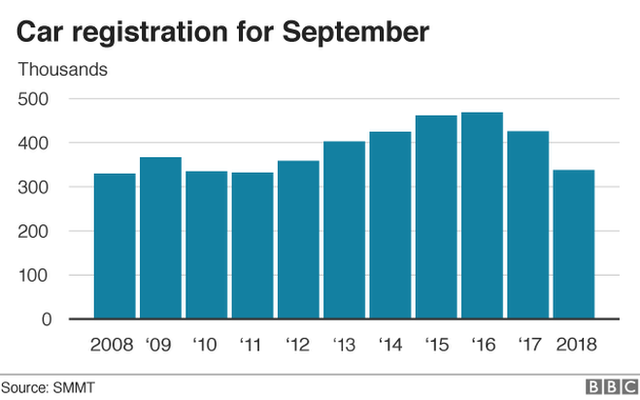
Since 1 September, all cars sold in the EU have had to undergo a new test known as the Worldwide Harmonised Light Vehicle Test Procedure. This has replaced all existing tests of emissions and fuel economy and has caused carmakers to struggle to cope.
SMMT chief executive Mike Hawes said: "With the industry given barely a year to reapprove the entire European model line-up, it's no surprise that we've seen bottlenecks and a squeeze on supply.
"These are exceptional circumstances, with similar declines seen in other major European markets. The good news is that, as backlogs ease, consumers and businesses can look forward to a raft of exciting high-tech cars and a market keen to recover lost momentum."
Alex Buttle, director of car-buying comparison website Motorway.co.uk, said the figures would send "shock waves" through the motor industry.
He added: "We are now entering a crucial and unprecedented period for the car industry, as the next new number plate will be March 2019, when the UK is due to leave the EU.
"It's likely to be a rollercoaster ride for new car sales figures for the foreseeable future, but it feels like we have just plunged into a deep canyon."
Clarity needed
The release of the figures coincided with a warning from Nissan that a no-deal Brexit would harm its business.
The carmaker said that frictionless trade as part of the EU single market had enabled the growth that had seen its Sunderland plant become "the biggest factory in the history of the UK car industry, exporting more than half of its production to the EU".
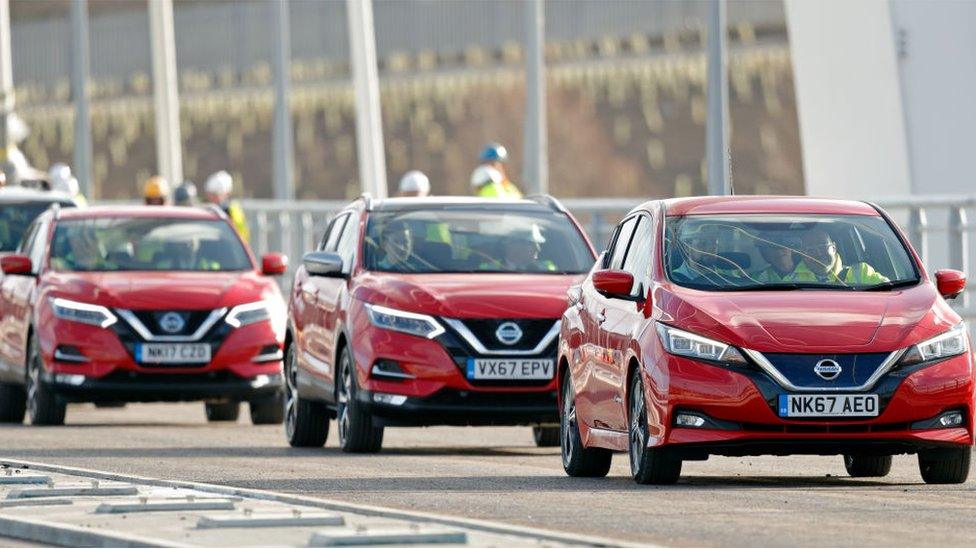
It added: "Today we are among those companies with major investments in the UK who are still waiting for clarity on what the future trading relationship between the UK and the EU will look like.
"As a sudden change from those rules to the rules of the WTO will have serious implications for British industry, we urge UK and EU negotiators to work collaboratively towards an orderly balanced Brexit that will continue to encourage mutually beneficial trade."
A government spokesperson said it was "determined to ensure that the UK continues to be one of the most competitive locations in the world for automotive and other advanced manufacturing. Our proposals make plans for a UK-EU free trade area underpinned by a common rulebook on industrial goods.
"However, a responsible government should prepare for all potential outcomes, including the unlikely scenario in which no mutually satisfactory agreement can be reached, and that is exactly what we are doing."
Other carmakers have issued similar warnings and said they are making contingency plans.
Last week, Toyota UK told the BBC a no-deal Brexit would temporarily halt output at its plant in Burnaston, near Derby, while Honda has said it is identifying components it might stockpile.
Last month, the boss of Jaguar Land Rover, the UK's biggest carmaker, said if the "wrong decisions" were taken, it could result in the "worst of times" for the UK and cost the company more than £1.2bn a year.
BMW said it was looking for car parking space on either side of the Channel and has also said it will close its Mini plant for a month following Brexit.
- Published3 October 2018
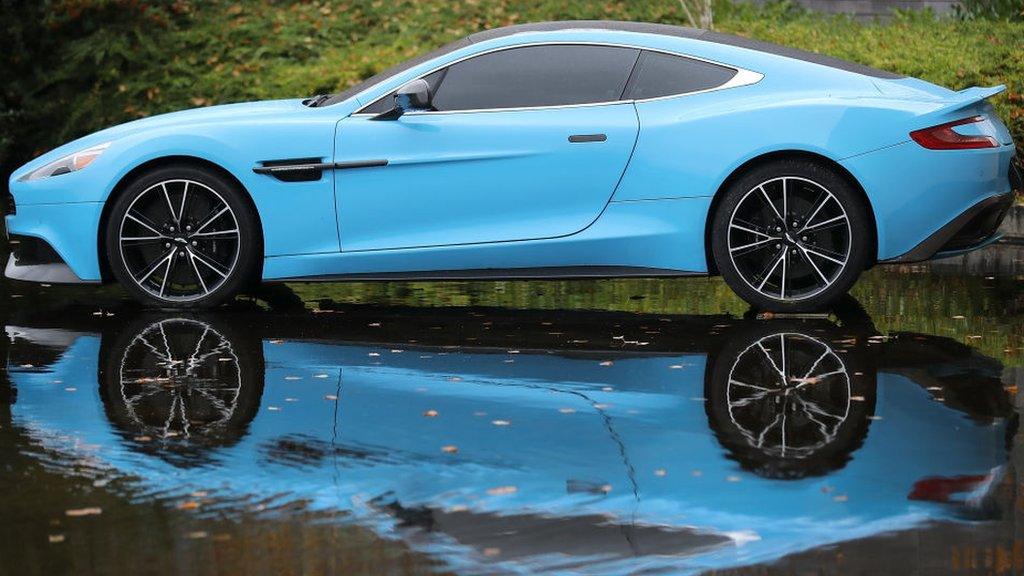
- Published3 October 2018
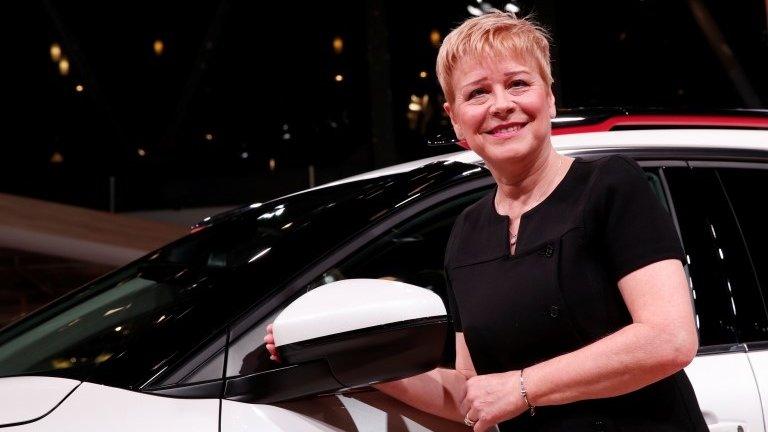
- Published2 October 2018
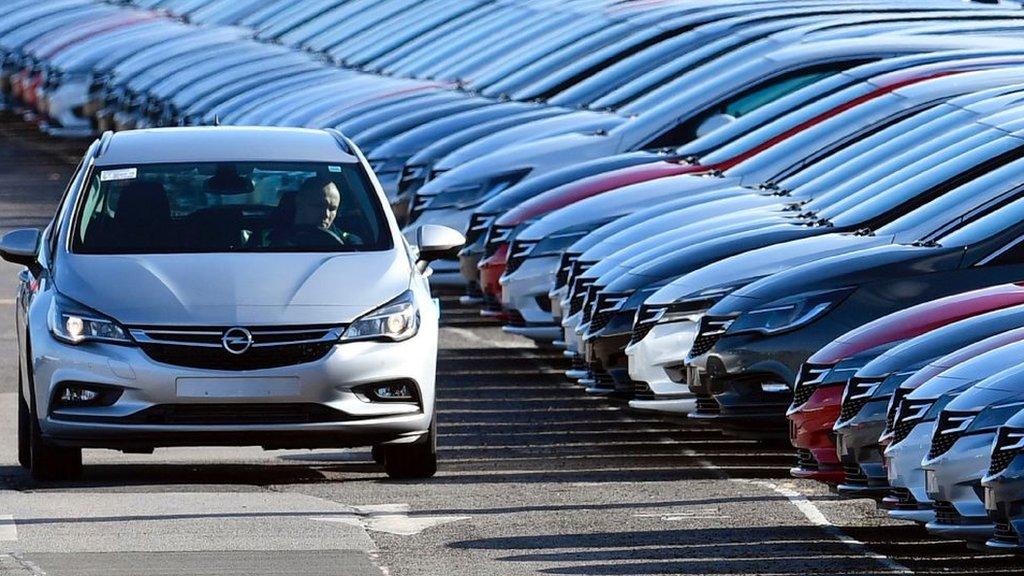
- Published2 October 2018
